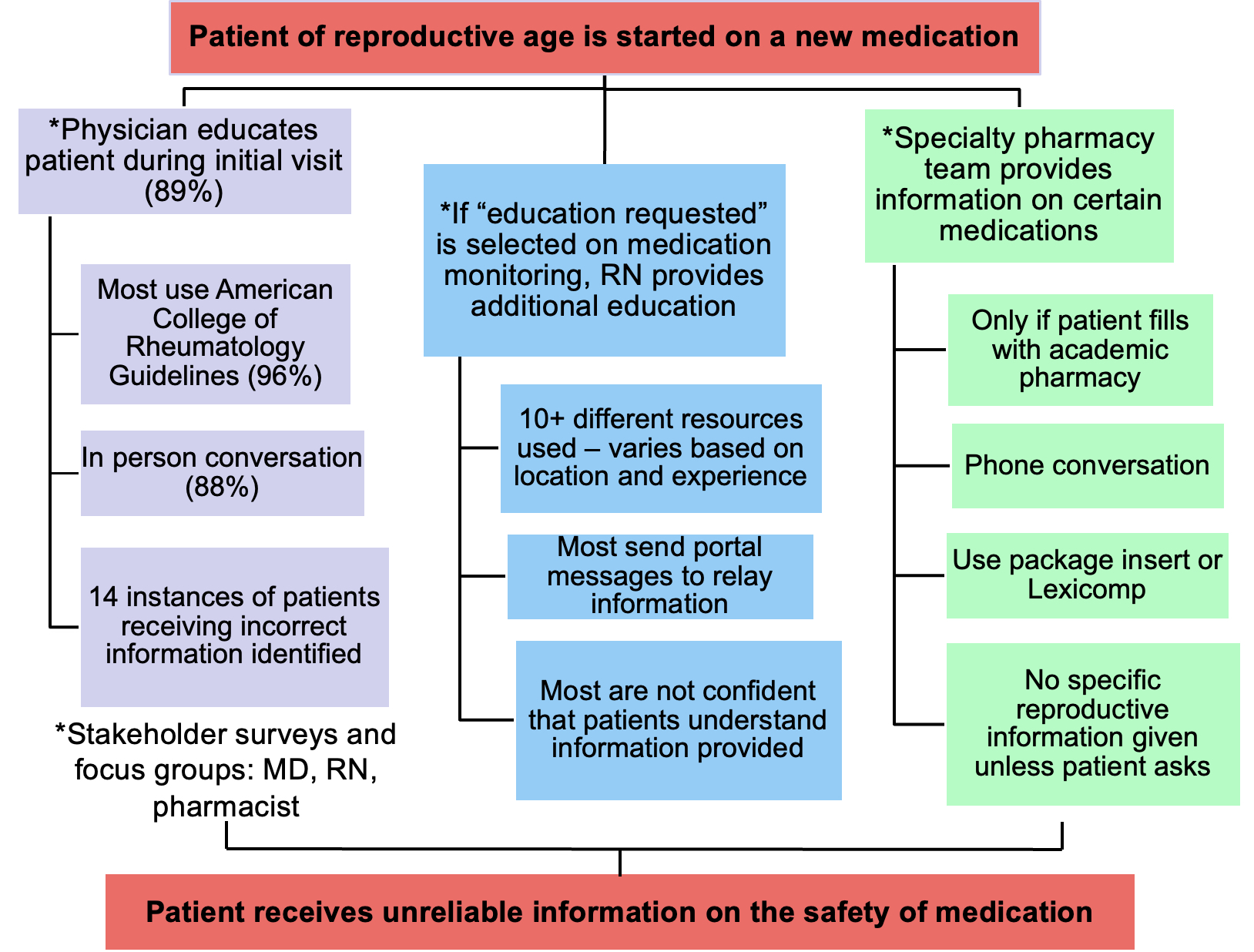Session Information
Date: Tuesday, October 28, 2025
Title: (2195–2226) Reproductive Issues in Rheumatic Disorders Posters
Session Type: Poster Session C
Session Time: 10:30AM-12:30PM
Background/Purpose: Patients with rheumatic diseases require dedicated counseling on reproductive planning from their rheumatologist.1 Information shared on safety of medications during pregnancy and lactation can be disparate depending on clinical setting, educational sources, method of communication, and type of provider. This wide variability can lead to patients receiving inconsistent information and miscommunications contributing to psychosocial distress, provider mistrust, and medication non-adherence, ultimately resulting in poor outcomes.2 The objective of this study was to evaluate current practices of patient counseling on medication safety during reproductive years at a large academic institution.
Methods: Electronic medical records of patients ages 18-45 years who were prescribed methotrexate, azathioprine, leflunomide, mycophenolate, tacrolimus, or adalimumab from July 2023 – December 2024 were analyzed to quantify demographics, prescription patterns, and documented medication counseling processes. Stakeholder focus groups including physicians, registered nurses (RNs), and pharmacists were conducted to understand workflows in use to counsel patients, with a specific focus on pregnancy and lactation. A provider survey was created to appraise common educational resources in use and quantify incidence rates of inaccurate information being given to patients.
Results: There were 2448 patients of reproductive age during the study period: 58.6% (n=1436) of this population had been historically prescribed a teratogenic medication, and 616 were currently on an active prescription of methotrexate (n=296), mycophenolate (n=246), or leflunomide (n=74). Forty percent of clinicians reported at least one instance of a patient receiving incorrect information regarding medication safety. Resources used were evidence-based, however geared toward specific audiences and provider categories, leading to significant discrepancy in reliable translation of this information at the patient’s level. Nurses and pharmacists had predetermined workflows, therefore counseled patients differently compared to clinicians (Figure 1). There were at least 13 resources with contrasting levels of accuracy used to educate patients on this topic (Table 1).
Conclusion: There are fundamental variances in patient-oriented educational protocols and practice patterns among practitioners including clinicians, nurses and pharmacists at a large academic practice despite existing guidelines. Standardization of accurate evidence-based resources is key to help eliminate discrepancies when providing reliable and quality education on medication related safety to patients.
 Root Cause Analysis: Stakeholder focus groups and surveys
Root Cause Analysis: Stakeholder focus groups and surveys
.jpg) Resources used by various care team members
Resources used by various care team members
To cite this abstract in AMA style:
He L, Carlton A, Bautista-Sanchez R, Khader Y, Khanna P. Improving Patient Counseling on Medication Safety During Reproductive Years [abstract]. Arthritis Rheumatol. 2025; 77 (suppl 9). https://acrabstracts.org/abstract/improving-patient-counseling-on-medication-safety-during-reproductive-years/. Accessed .« Back to ACR Convergence 2025
ACR Meeting Abstracts - https://acrabstracts.org/abstract/improving-patient-counseling-on-medication-safety-during-reproductive-years/
